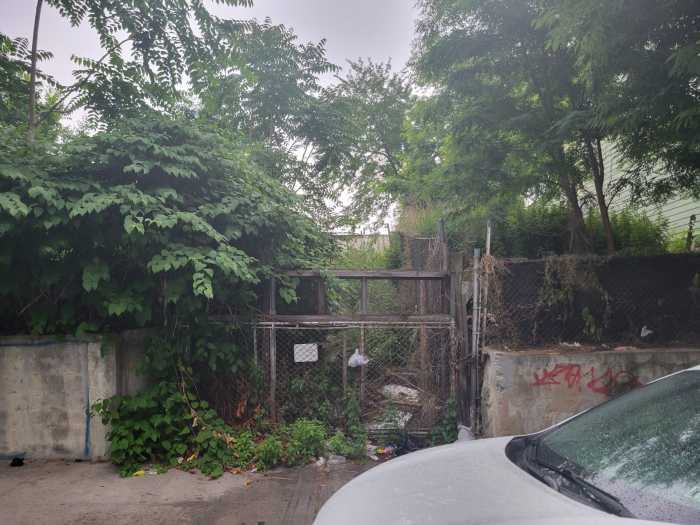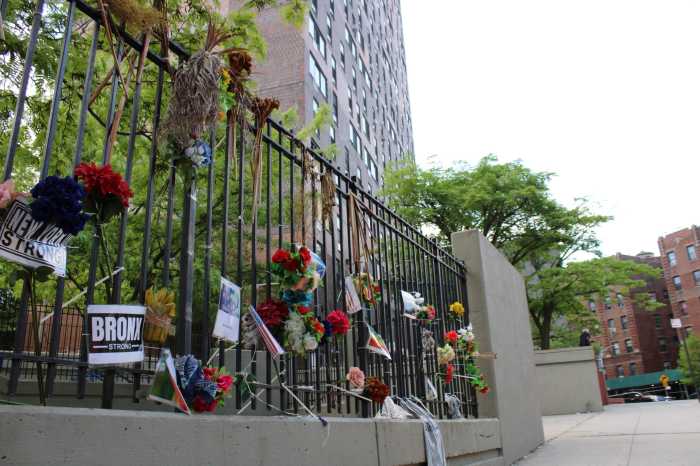The Fortune Society is suing iAfford, a company that places tenants in city-subsidized affordable apartments, for discriminating against prospective renters.
The nonprofit plaintiff, which has a slogan of “building people, not prisons,” is accusing the company of illegal discrimination on the basis of race, color and national origin through a blanket ban on individuals with criminal convictions on their records. iAfford, which lists affordable apartments and screens tenants, is listed by the NYC Department of Housing Preservation and Development (HPD) as an approved marketing agency for leasing affordable units through the agency’s Housing Connect System. The company has 13 Bronx buildings listed on its website.
In the lawsuit filed on Friday in the U.S. District Court for the Eastern District of New York, the Fortune Society alleges that “iAfford rejects all applicants with a criminal record regardless of the nature of the conviction, age at the time of the offense, or evidence of rehabilitation.” While landlords are allowed to run criminal background checks in NYC, they are supposed to assess each applicant on a case-by-case basis, rather than purely rejecting them based on a conviction.
The Fortune Society claims that in April 2021, a client was denied housing at a pre-screening stage because of a years-old conviction and was not given an opportunity to provide context, nor explain why he was qualified to rent the apartment. The complaint references recorded phone calls in August, September and December 2021 with iAfford employees who all confirmed that the company rejects applicants if they have a criminal record.
In August 2021, HPD clarified and expanded its guidance on rejecting applicants due to their criminal background, which included requiring developers to make individual assessments of applicants, such as taking their current employment into consideration.
The nonprofit, which is being represented by civil rights law firm Relman Colfax PLLC, is demanding a jury trial on the case. Along with wanting the company to change its practices, the Fortune Society is seeking both compensatory and punitive damages. In other words, the nonprofit wants the defendant to compensate it for harm the organization alleges iAfford had on its operations, and to pay the Fortune Society additional money as punishment, both in amounts set by the jury. The Fortune Society is also asking for attorney’s fees and prejudgment interest.
Considering relevant information beyond what’s written on a criminal record like the context for the crime and rehabilitation efforts has been long recommended by the U.S. Department of Housing and Urban Development (HUD), such as in an April 2016 Fair Housing Act guidance that described the individualized approach as less likely to be discriminatory than a categorical exclusion, which is what Fortune Society is accusing iAfford of having. The federal agency doubled down on that stance in a June 2022 memorandum, which also said private housing providers should consider not using criminal history to screen tenants and that criminal history is not a good predictor of housing success.
Rejecting applicants simply based on having a criminal conviction isn’t just against HPD’s rules and HUD’s recommendations, but it amounts to illegal discrimination against Black and Latino applicants because they are disproportionately convicted and incarcerated, the Fortune Society argues. According to the lawsuit, the nonprofit serves about 9,000 clients annually, of which 90% are Black and Latino.
Out of more than 2.5 million convictions in NYC from 1990-2019, 53.9% and 32.7% were of Black and Latino individuals, respectively, according to an April 2019 John Jay College of Criminal Justice report.
But Eugene Goldstein, CEO of iAfford, told the Bronx Times that the company follows all HPD and Fair Housing rules and that he is “dismayed that any member of our staff might have suggested otherwise.” The company plans to conduct a thorough in-house investigation into the matter, he said.
“We are confident that any look into our company operations will quickly prove our adherence to all Fair Housing laws,” he said. “Our entire raison d’etre (reason for existence) is to facilitate affordable housing to those who need it most. Our objective is to help them, to ensure that they have every possible chance.”
The Fortune Society claims that it diverted time and funding from other initiatives to counteract the harm caused by iAfford, such as through its investigation into the company and an $11,000 advocacy campaign about blanket bans on people with criminal records. The organization also claims its efforts were undermined by the defendant, as the nonprofit hosted an HPD representative in April to speak to formerly incarcerated clients about applying for affordable housing through Housing Connect — which iAfford lists apartments for.
By gatekeeping affordable apartments, the company also put a burden on the nonprofit to find other housing for its clients, the Fortune Society argues.
Beyond the lawsuit, municipalities across the country are reconsidering the role criminal records should have in vetting tenants.
For example, in neighboring New Jersey, landlords are largely restricted from inquiring about prospective tenants’ criminal records until after conditionally approving their application, at which point the prospective tenant must be provided an opportunity to point out inaccuracies or provide evidence of rehabilitation or other mitigating factors. Landlords can then withdraw the conditional offer if the applicant has serious crimes on their record, or indictable offenses in the first degree within the past six years, second or third degree in the past four years, or fourth degree in the past year, but must provide reason for doing so.
As an exception, landlords in New Jersey can consider convictions of producing methamphetamine on federally-assisted housing premises and lifetime sex offender registrations during the first stage of applications.
A similar but seemingly stricter move is under consideration by the New York City Council, as Majority Leader Keith Powers introduced The Fair Chance for Housing Act on Aug. 11, which, as currently written, would prohibit landlords from obtaining criminal records at any stage in the rental process, with exceptions. The bill is sponsored by various politicians, including members of the City Council’s Bronx delegation — Pierina Sanchez, Kevin Riley, Oswald Feliz, Amanda Farías, Althea Stevens and Diana Ayala, in conjunction with Bronx Borough President Vanessa Gibson.
A 2020 version of the bill was never put to a vote under former Council Speaker Corey Johnson, though Adrienne Adams, the current council speaker, was one of the bill’s sponsors.
The Fortune Society has become a household name in the northern Morris Park neighborhood Indian Village, where the nonprofit is proposing a supportive housing development called Just Home in conjunction with NYC Health + Hospitals that would house formerly jailed homeless individuals with medical issues in a vacant Jacobi Medical Center campus, which has drawn opposition from the Morris Park Community Association and the local Community Board 11 as well as support from advocates of the project.
This article was updated on Nov. 4 at 6:36 p.m.
Reach Aliya Schneider at aschneider@schnepsmedia.com or (718) 260-4597. For more coverage, follow us on Twitter, Facebook and Instagram @bronxtimes






















